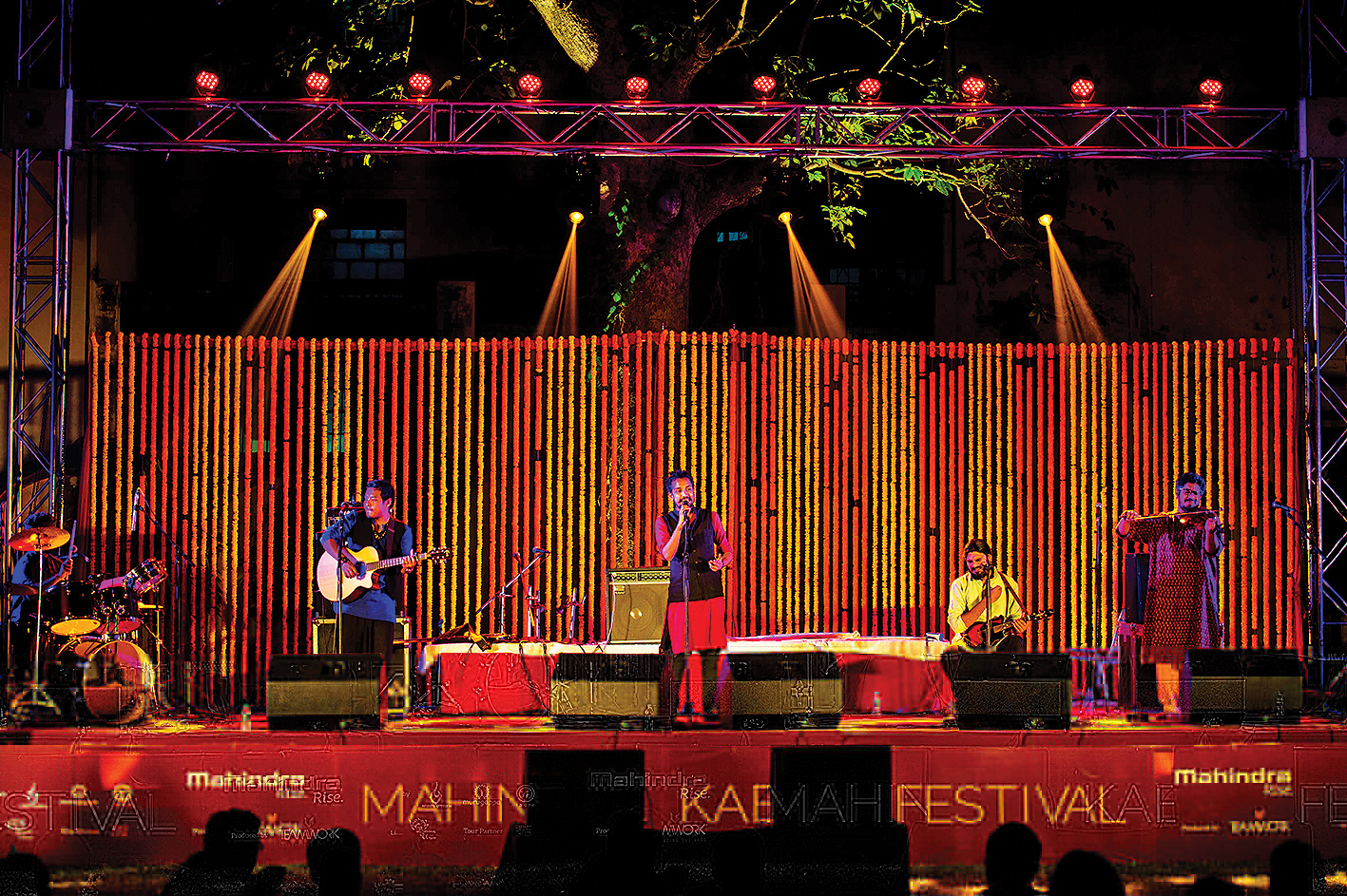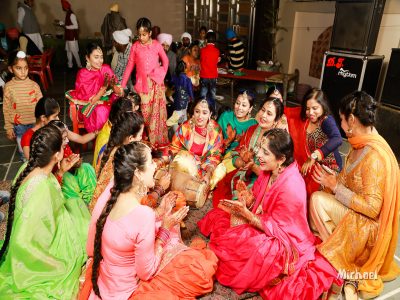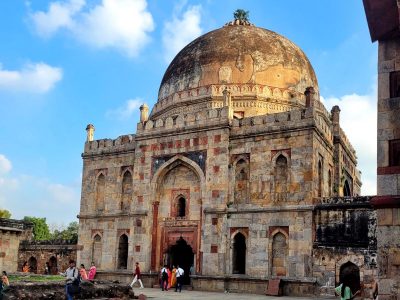Jay Shah, Vice-President, Head – Cultural Outreach, Mahindra Group shares the vision behind the Mahindra Kabira Festival
MURTAZA ALI KHAN
@patriot_talks
Mahindra Kabira Festival, known for offering an immersive experience inspired by Kabir’s teachings, is back with its fourth edition. This year the festival will run from 22 – 24 November, 2019 in the beautiful city of Varanasi. Mahindra Kabira Festival brings together music, literature, discourse, heritage walks, boat rides on the Ganga, and an array of local cuisine, among other things. This year the lineup includes young performers like Neeraj Arya’s Kabir Café, Ujwal Nagar and Neeraj Mishra, as well as veterans like Shabnam Virmani, Mooralala Marwada, Om Prakash Nayak, and noted sarangi player Ustad Kamal Sabri as well as the three-time Grammy nominee Pt. Ajay Shankar Prasanna.
In this interview, Jay Shah, Vice-President, Head – Cultural Outreach, Mahindra Group shares the vision behind the Mahindra Kabira Festival. He also looks back at the festival’s journey while highlighting the importance of cultural outreach in a developing country like India.
Excerpts:
What is the vision behind the Mahindra Kabira Festival? How does a venue like Varanasi boost the creative prospects of a music festival? Who are the different stakeholders involved in hosting it?
In an increasingly complex world polarised by various ideologies, the verses written by Kabir provide an oasis where we can seek refuge and make sense of our existence. It is with this intent – of going back to the profound yet simple teachings of Kabir that we decided to celebrate him through the Mahindra Kabira Festival.
Varanasi is the oldest living city; it has been the seat of culture since ancient times and is the birthplace of Kabir. These are the main reasons that prompted us to locate the festival here–an effort to bring Kabir home, so to speak. The sheer delight the artists express when invited to perform in Varanasi and their enchanted performances over the first three editions of the festival are a testament to a certain je ne sais quoi that this city has on the creative prospects.
The administration has been extremely supportive of the festival. The people of Varanasi have embraced the festival with much love by showing up in huge numbers. Our out of town and out of country delegates have been steadily increasing each year. The artists living in Varanasi and those invited from all over India have shown so much enthusiasm to perform on the revered Ghats. The local businesses like the hotels, the tour guides, the weaver communities, the iconic food joints all have been integral to the festival. The Mahindra Group and Teamwork Arts as promoters and producers of the festival complete the list of the festival stakeholders.
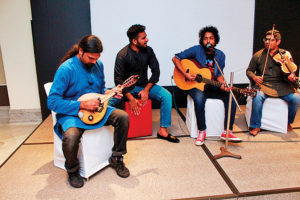
How do you reflect upon the festival’s journey so far? Also tell us about the key achievements of the first three editions.
We are very satisfied with the festival’s trajectory so far. The buzz to attend the festival in Mumbai and Delhi and other Indian cities has been growing. We have many visitors from out of India as well who come especially for the festival. The city of Varanasi looks forward to the festival each year. The artists are forever grateful for the opportunity to perform at the very font of culture. This sense of gratefulness from all stakeholders has been the most heartening achievement for us.
What can we expect from this edition of Mahindra Kabira Festival? What would be your recommendations to those visiting the festival?
The most alluring aspect of this edition of the festival is the collaborations we have been able to enable between the artists. Unusual pairing such as Kabir Café singing with Mooralala Marwada are going to be the hallmark of this festival which we are keen to do more. We recommend the delegates to partake in all the activities lined up in the program. The morning music at the Guleria Ghat starts of the day. We have planned heritage walks, food tours, literature sessions and finally the evening music at Shivala Ghat. Each of these activities is very carefully chosen and planned and is sure to give the delegate an enlightening experience.
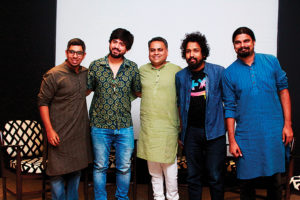
Other than the Mahindra Kabira Festival, what other cultural initiatives does the Mahindra Group undertake? Tell us about your involvement in these initiatives.
The Mahindra Group’s Cultural Outreach has at present five festivals across India. The Mahindra Excellence in Theatre Awards and Festival in Delhi will be celebrating its 15th year in March 2020. The Mahindra Blues Festival in Mumbai starts its 10th season in February 2020. This year was the 10th edition of the Mahindra Sanatkada Lucknow Festival which is a multi-cultural festival with a core of Arts and Crafts. We started the Mahindra Open Drive this year in Goa which has a three-pronged focus – Culture, Adventure and Charity. And finally, Mahindra Kabira Festival will be in its 5th edition in November 2020. These are not sponsorships and the Mahindra Group is integrally involved in these festivals. We have co-created these festivals with our partners.
Mahindra Group seems quite committed to encouraging Indian arts and culture. What kind of challenges do you face while promoting cultural outreach through festivals like Mahindra Kabira?
While we are committed to encouraging the arts, the Mahindra Cultural Outreach is not part of our CSR programs. We are happy that our involvement generates much admiration from both the artist communities as well as the audience. Since our programs are designed to establish connect with our current and prospective customers, we enjoy a lot of goodwill from the organisation. The only challenge is to ensure we maintain the high standards of curation and presentation which has allowed us to sustain our festivals over all these years.
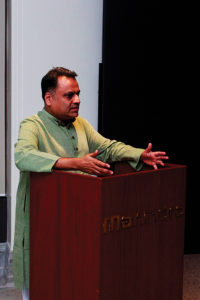
How do you look at the role of cultural outreach from the point of view of corporate setup in a developing country like India?
In a world void of traditional forms of patronage for the Arts – like the royalty or the state, it is important for the corporate to adopt and nurture artists and art forms. This involvement can be purely philanthropic, as a gesture of giving back to the communities that we do business in or if done smartly, as we do, can also help strengthen the brand perception and therefore lead to customer loyalty and ultimately business success.

